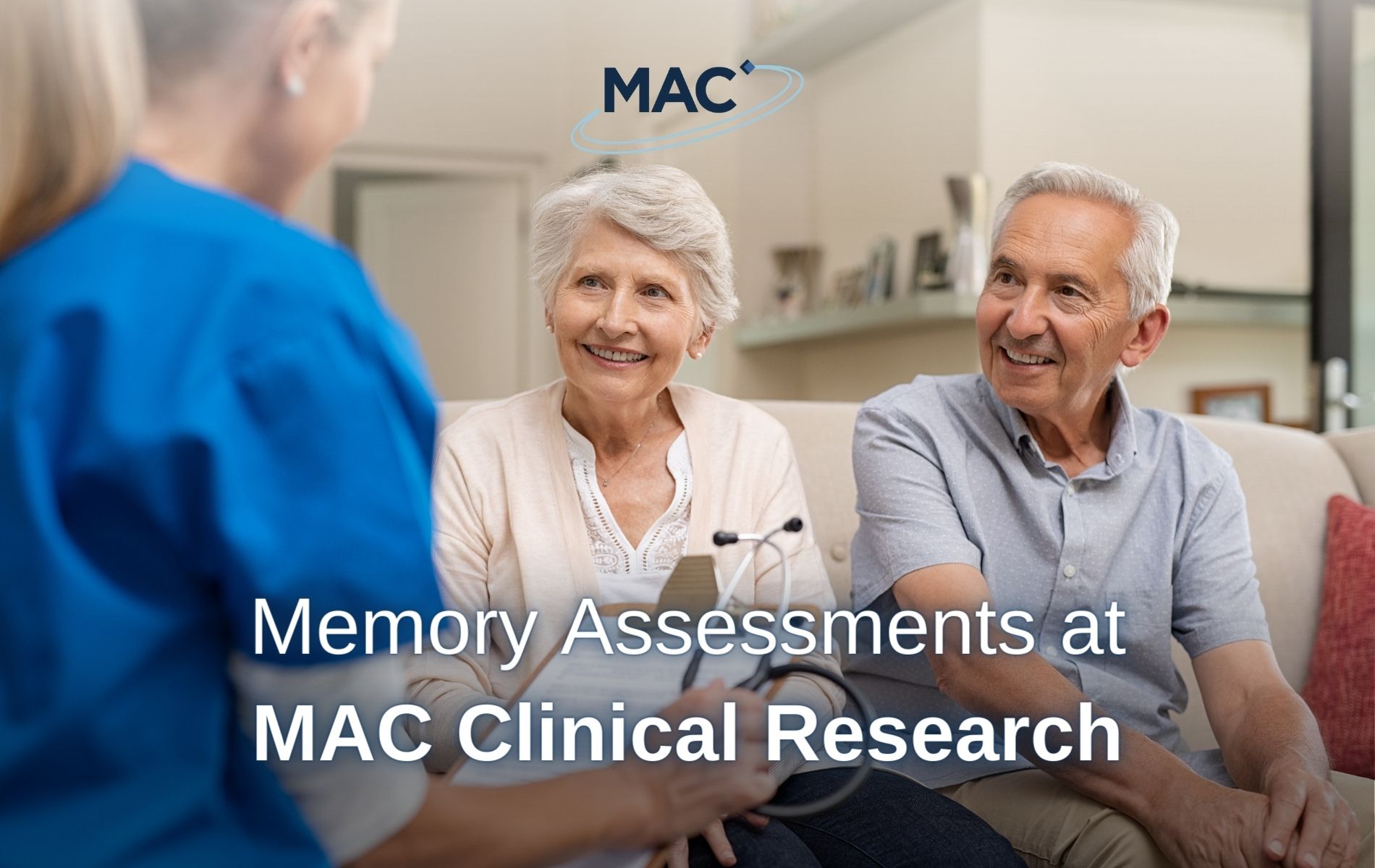Here at MAC Clinical Research, we offer free memory assessments for those aged over 50 who are having concerns about their memory. We spoke to Clinical Rating Specialist Nigel Ball from MAC about what’s involved in a memory test and the benefits of assessing memory.
What are some of the main memory problems over 50s should be aware of?
One of the main medical conditions facing the older generations is dementia; around 900,000 people in the UK are living with it, with this figure set to rise to 1.6 million by 20401. Alzheimer’s is the most common form of Dementia. Alzheimer’s, however, is most common in people aged over 65; around 5 in every 100 people under 65 are living with the condition2, compared to 1 in 9 over 653. Developing dementia before the age of 65 is considered ‘young onset’ dementia.
Nigel also highlights other conditions which can cause or lead to debilitating memory issues: “Mild Cognitive Impairment (MCI) may be a precursor to dementia as it impacts people’s abilities to recall memories and process thoughts.
“Other conditions such as Parkinson’s can lead to memory problems too.”
Research indicates that up to 80% of people living with Parkinson’s disease eventually develop dementia as well4.
Why are memory assessments important?

Nigel said: “By seeking medical assistance at the earliest convenience, assessments of their memory can be conducted, and interventions can be quickly taken to potentially slow any deterioration of their memory.”
We may also be able to identify other issues with your health that are not related to dementia but may be causing you to experience memory difficulties such as depression.
It’s estimated that in the UK, around 40% of those aged 65 and over are living with dementia but do not have a diagnosis5.
Early diagnosis through memory assessments also offers better opportunities for those living with dementia or memory conditions to take part in research, such as clinical trials, thus contributing to efforts to improve treatment options.
What is Involved in a Memory Assessment at MAC?
After registering for a memory assessment, MAC Clinical Research’s patient liaison team will call you and go through a series of questions regarding your memory concerns before scheduling your first appointment within four weeks.
Nigel says: “Following your call, you’ll visit one of our clinics in a relaxed and friendly environment to complete the memory assessment, which includes a chat about your history and some simple puzzles and questions. We will discuss the results of these tests with you so that you understand everything thoroughly.
“After your visit and with your permission, we can liaise with your GP and share your results with them and, if necessary, we can also provide ongoing memory reviews.”
How does MAC accommodate people who are experiencing memory problems?
Before visiting our Memory Assessment Research Clinics, we will send appointment reminders. We also have parking on-site and step-free access to the clinics so there is minimal walking for anyone with mobility issues.
Patients visiting our clinics are also encouraged bring a friend, or family member to accompany them and provide support.
Nigel adds: “Our friendly clinic team try to accommodate any needs you might have and our team of healthcare professionals understand your condition. Patient care is our utmost priority”.
Register for a Memory Assessment
Did you know that MAC Clinical Research established some of the very first memory clinics in the UK? MAC continues to proudly provide free memory tests to the local communities in Lancashire, Merseyside, South Staffordshire, South Yorkshire, Teesside, and West Yorkshire.
If you or a loved one is over 50 years old and have concerns about memory, register for a free memory test via our Memory Assessment Research Clinic’s webpage.
1 Alzheimer’s Research UK – INTRODUCTION TO THE DEMENTIA STATISTICS HUB
2 Alzheimer’s Research UK – Young onset dementia
3 Alzheimer’s Association – Alzheimer’s Disease Facts and Figures
4 Well Institute for Neurosciences – Parkinson’s Disease Dementia
5 Alzheimer’s Research UK – Diagnosis of Dementia






